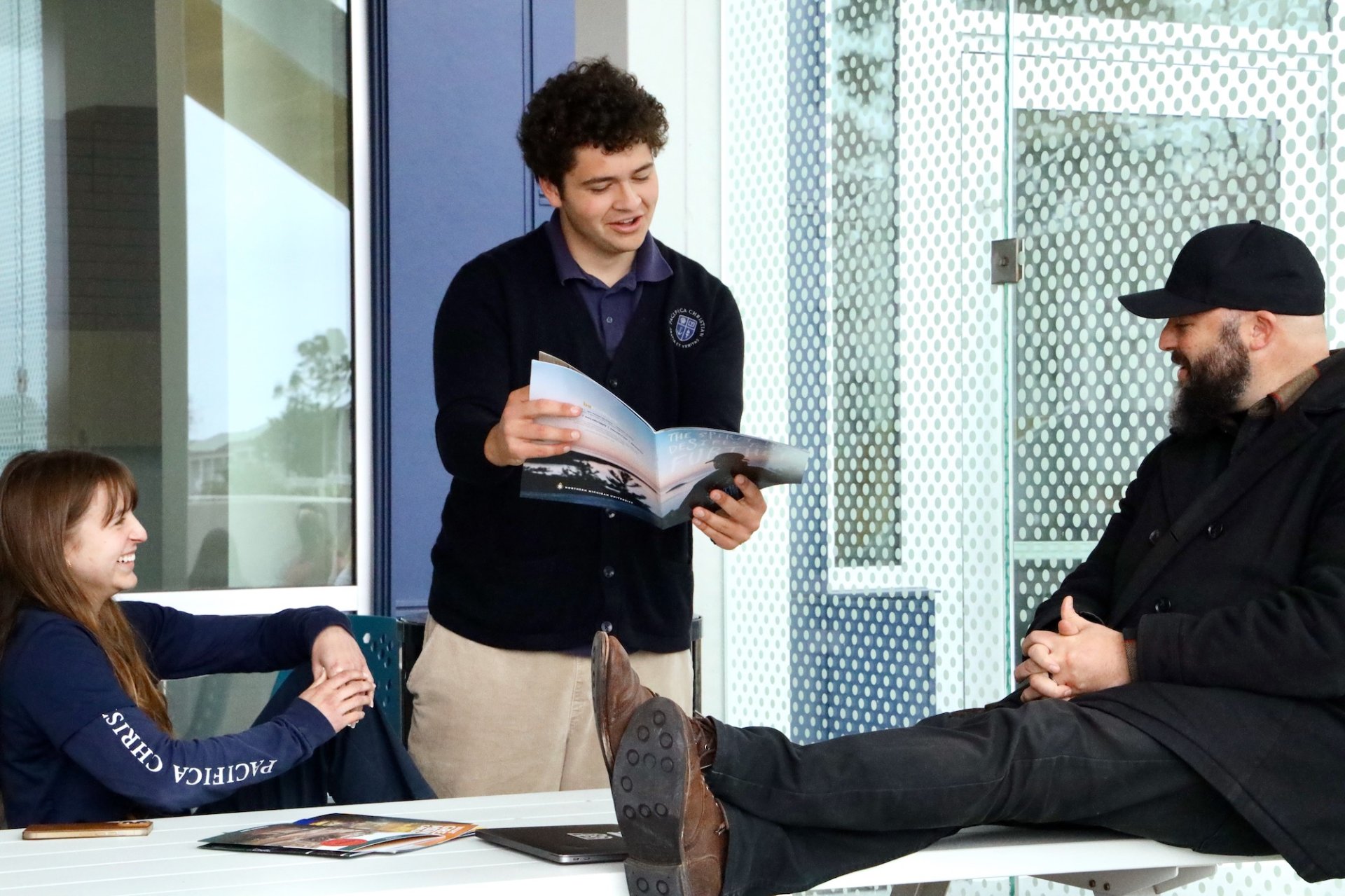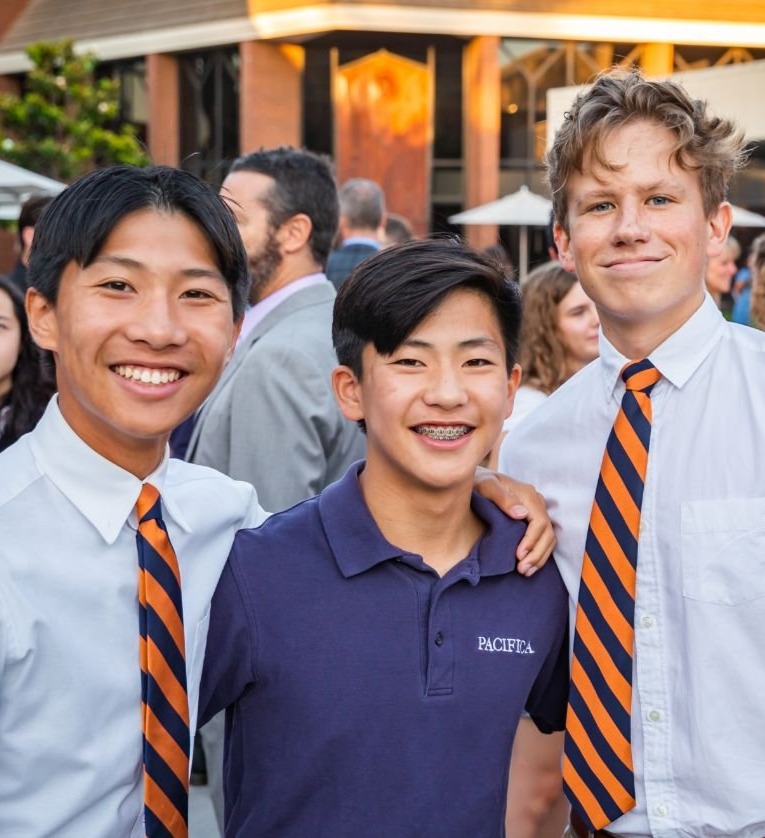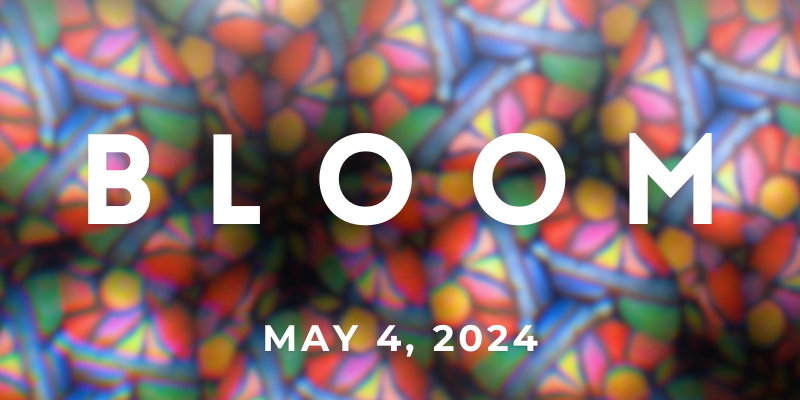"Stand at the crossroads and look;
ask for the ancient paths,
ask where the good way is, and walk in it,
and you will find rest for your souls.” — Jeremiah 6:16
In order to prepare students for a flourishing life, all students at Pacifica take our core curriculum classes. Not unlike Columbia University’s core curriculum, Pacifica’s core classes serve to mitigate against the hyper-specialization and mere career preparation so prevalent in many contemporary academic institutions. The Pacifica Core introduces students to the great human tradition of value. This tradition, which reaches back at least to Aristotle, insists that the best education is one that produces good human beings. It claims that reason and revelation tell us what human persons are for, and raises doubts that one can flourish merely by being technically sophisticated. The result is that students who complete the Pacifica Core will not only be skilled in their disciplines, but also, and more importantly, capable of rationally judging the uses to which they put the things they are making by asking and wisely answering difficult questions:
- Is this good for humans?
- Will it add human value to our world?
- Does it honor God?
- What are its downstream impacts?
The Pacifica Core is grounded in broad historical study and practice of virtue and theology. Students not only learn about texts, but rather from them. All students will take four years of history, theology, and English, based upon readings from the ancient world all the way down the years to the contemporary moment. In doing so, they will avoid the “chronological snobbery” that would merely perpetuate the naive and blinkered mistakes of their own day by engaging them in conversation with the wisdom of the past from cultures and times not their own. What’s more, they will do this work not only in conversation with great books, but also around tables in discussions with their peers and in mentoring relationships with faculty and staff who are moral and spiritual exemplars and from whom they will learn proper emotional responses. The reason for this methodology is simple: it is not enough merely to know what is right; one must also be formed to love what is right, and to love things rightly. Indeed, every student takes the Core because a moral compass is something that has to be formed in a community of faith through good company, mentoring friendships, the cultivation of habits, and service to others.

The Pacifica Core thus acknowledges that all things stand in relation to other things, and so lays the foundation for inquiry as a quest for timeless objective truth which engages the imagination, the reason, and the will toward humane ends. At the same time it warns that humans freed from all moral constraints will become enslaved to their physical impulses. To say as much is to acknowledge that the primary goal of education is not preparation for employment or civic participation, or even the ongoing existence of the species. Those are secondary byproducts of a good education. A good education is rather one that establishes a core of personal freedom and moral conviction that produces a well-ordered human being who can thrive in any context by rationally utilizing their gifts in service to the world and in accordance with the objective moral law. Students who take the Pacifica Core to heart will have the opportunity to become those kinds of people—people who know the good and love the good, and so have the courage to act upon the good when the choice is put before them. This is why we teach the Pacifica Core.
Jacques Maritain once said,
“Education is an art, and an especially difficult one. Yet it belongs by its nature to the sphere of ethics and practical wisdom. Education is an ethical art (or rather a practical wisdom in which a determinate art is embodied). Now every art is a dynamic trend toward an object to be achieved, which is the aim of this art. There is no art without ends; art’s very vitality is the energy with which it tends toward its end.”
The Pacifica Core is that art by which we aim students toward their end as fully flourishing human beings created by God for the purpose of wholeness in Christ who is their only true and abundant life. We invite you to learn more about the Pacifica Core by looking through the scope and sequence below.
The Pacifica Core Classes
9th Grade
Ancient World History (Old Testament)
Ancient World Literature
10th Grade
Medieval World History II (New Testament)
World Literature & Composition
11th Grade
European Ethics & Politics
British Literature (The History of the English Bible)
12th Grade
U.S. History (We The People & Civics)
American Literature
Faith & Culture Seminar (Theology, Philosophy, Economics, & Civics)



.jpg?v=1677078481949)


_-2.jpg?v=1677078725816)
.jpg?v=1677078837139)
